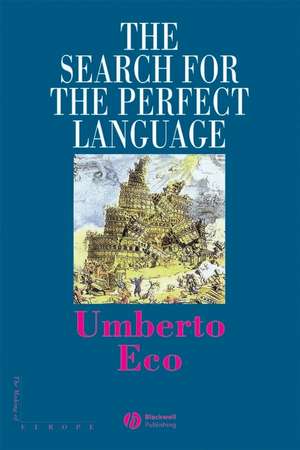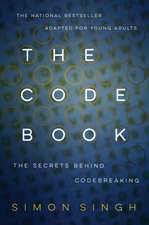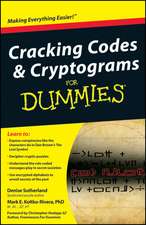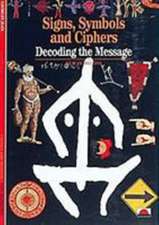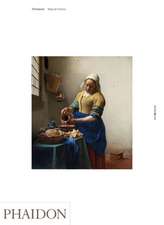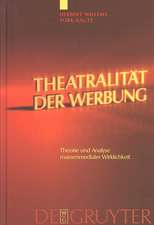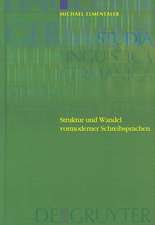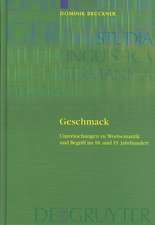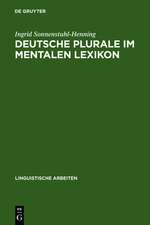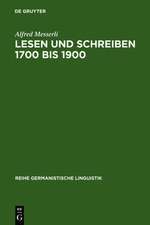Search for the Perfect Language: Making of Europe
Autor U Ecoen Limba Engleză Paperback – 14 iul 1997
From the early Dark Ages to the Renaissance it was widely believed that the language spoken in the Garden of Eden was just such a language, and that all current languages were its decadent descendants from the catastrophe of the Fall and at Babel. The recovery of that language would, for theologians, express the nature of divinity, for cabbalists allow access to hidden knowledge and power, and for philosophers reveal the nature of truth. Versions of these ideas remained current in the Enlightenment, and have recently received fresh impetus in attempts to create a natural language for artificial intelligence.
The story that Umberto Eco tells ranges widely from the writings of Augustine, Dante, Descartes and Rousseau, arcane treatises on cabbalism and magic, to the history of the study of language and its origins. He demonstrates the initimate relation between language and identity and describes, for example, how and why the Irish, English, Germans and Swedes - one of whom presented God talking in Swedish to Adam, who replied in Danish, while the serpent tempted Eve in French - have variously claimed their language as closest to the original. He also shows how the late eighteenth-century discovery of a proto-language (Indo-European) for the Aryan peoples was perverted to support notions of racial superiority.
To this subtle exposition of a history of extraordinary complexity, Umberto Eco links the associated history of the manner in which the sounds of language and concepts have been written and symbolized. Lucidly and wittily written, the book is, in sum, a tour de force of scholarly detection and cultural interpretation, providing a series of original perspectives on two thousand years of European History.
The paperback edition of this book is not available through Blackwell outside of North America.
Din seria Making of Europe
-
 Preț: 260.97 lei
Preț: 260.97 lei -
 Preț: 245.41 lei
Preț: 245.41 lei -
 Preț: 363.13 lei
Preț: 363.13 lei - 8%
 Preț: 493.63 lei
Preț: 493.63 lei -
 Preț: 434.48 lei
Preț: 434.48 lei - 23%
 Preț: 443.96 lei
Preț: 443.96 lei - 23%
 Preț: 420.95 lei
Preț: 420.95 lei -
 Preț: 489.00 lei
Preț: 489.00 lei -
 Preț: 497.45 lei
Preț: 497.45 lei -
 Preț: 395.84 lei
Preț: 395.84 lei -
 Preț: 402.97 lei
Preț: 402.97 lei - 27%
 Preț: 797.43 lei
Preț: 797.43 lei -
 Preț: 516.01 lei
Preț: 516.01 lei -
 Preț: 398.73 lei
Preț: 398.73 lei - 23%
 Preț: 692.43 lei
Preț: 692.43 lei -
 Preț: 452.29 lei
Preț: 452.29 lei -
 Preț: 514.96 lei
Preț: 514.96 lei - 23%
 Preț: 464.18 lei
Preț: 464.18 lei -
 Preț: 386.09 lei
Preț: 386.09 lei
Preț: 389.36 lei
Nou
74.50€ • 77.79$ • 61.66£
Carte tipărită la comandă
Livrare economică 04-18 aprilie
Specificații
ISBN-10: 0631205101
Pagini: 400
Dimensiuni: 152 x 229 x 21 mm
Greutate: 0.54 kg
Editura: Wiley
Seria Making of Europe
Locul publicării:Chichester, United Kingdom
